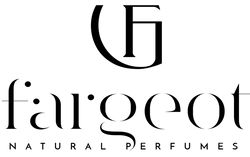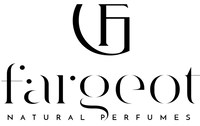Natural? Vegan? Organic?... What does it actually mean? How is it regulated? And what does it mean for perfumes?

Credit photo: Chris Arthur-Collins on Unsplash
We are all after the best quality products for us and our family and in order to do so, we have to heavily rely on labels and brand claims to make the right choices. But between marketing gimmicks and genuine claims, consumers can be left confused as to what and who to trust. We are trying to shed some light on what different terms actually mean, how they are regulated and how they apply to perfumes.
Natural
What does "natural" mean?
The term “natural” is being thrown around a fair bit, sometimes quite loosely. If we wanted to define it though, we could describe it as a substance produced by a living organism and found in nature (as opposed to something synthetic, which is man-made, produced in laboratories, hence not found in nature).
How is the word “natural” regulated?
Before 2019 in Australia, the term “natural” was widely unregulated until the Therapeutic Goods Association (TGA) published some guidance.
Brands always have to substantiate their claims but under this guidance, it is made clear that brands mustn’t mislead consumers when positioning their products as “natural”. To be able to qualify as such, they need to ensure that all the ingredients present in their products are found in nature and undergo only minimal changes to stay close to their raw original form.
The guidance however also states that if the above is not met, brands can still use the term "natural" as long as they explain what it means to them.
The TGA regulation is a step in the right direction to ensure consumers are not being misled though it is still crucial to truly understand what a brand means when they label their products as “natural”.
So, what’s a natural perfume?
By the standard and definition above, a natural perfume is only made with ingredients found in nature that undergo only minimal changes from their raw form as they make their way into the perfume.
For example, natural perfumes may be made of essential oils and alcohol.
Essential oils are extracted from plants or trees using their leaves, flowers, fruits, root, stem or bark. Extraction can be made through different processes such as:
- Distillation, using steam through a heating and cooling process to extract the oil. The leftover water is called hydrosol and is also a natural ingredient that may be used for perfumes
- Expression, which is scraping peels to extract the oil. It is especially used for citrus
- CO2 extraction, where carbon dioxide is used as a natural solvent to separate the essential oil from its raw material
Whatever method is used, essential oils are considered natural as they use ingredients found in nature which undergo minimal and chemical-free changes to reach its final form.
This contrasts with fragrance oils which are also widely used in the perfume industry though created in laboratories to replicate certain scent, making perfumes using fragrance oils not natural.
Alcohol is made from the sugar contained in different foods (e.g. grapes, barley, potatoes etc) that ferments with yeast. This combination in an oxygen-free environment breaks down the sugar, producing ethanol and carbon dioxide. Ethanol is the natural ingredient used in natural perfumes to dilute the essential oils.
Vegan
What does "vegan" mean?
Veganism is most commonly associated with diet though it is actually more of an overall philosophy and way of living. Vegans seek to exclude all forms of exploitation and cruelty towards animals, which makes all vegan products cruelty-free as well.
When it comes to food, vegetarians may not eat meat and fish but still consume products from animal origin such as eggs, dairy and honey. Vegans do not consume such products.
By extension, vegans also stir away from products containing any component from animal origin or that have been tested on animals. Beyond food, vegans would not wear clothing made of wool for example.
How is the word to be “vegan” regulated?
Unfortunately, there is no strict regulation around the use of the term “vegan” in Australia. This mainly stems from the fact that the term “vegan” is not legally defined yet.
Under Australia’s Consumer and Fair Trading laws, manufacturers of goods are still obliged not to mislead or deceive consumers with their labelling and claims though without a proper legal definition, this leaves room for grey areas.
Independent organisations such as Vegan Australia offer certification for products that qualify as “vegan” though not all brands elect to pay for such a service as it is not mandatory to claim a product as “vegan”. This means that consumers may still scrutinise labels and product compositions to know whether something is truly vegan.
So, what’s a vegan perfume?
A vegan perfume would be created with the vegan philosophy in mind, meaning that all its ingredients and packaging must not be derived from any animal sources.
It is important to note that while all vegan perfumes are cruelty-free, not all cruelty-free perfumes will be vegan. Also, a perfume can be natural but not vegan (if they are using ambergris for example) and not all vegan perfumes will be natural (vegan perfumes can use fragrance oils for example)
A natural vegan perfume may be made of essential oils and alcohol and stir away from common non-vegan ingredients in the perfume industry such as ambergris, honey or beeswax. Also, a vegan perfume will be conscious to not be tested on animals and that all its ingredients haven’t been tested on animals. Lastly, when vegan products are manufactured in the same facilities as non-vegan products, cross-contamination must be minimised.
Organic
What does "organic" mean?
An organic product is made from materials issued from organic farming. Similarly to vegan products, it is commonly associated with food though it extends to other products such as clothes and personal care items.
Similarly to veganism, organic farming is more than choosing not to use pesticide, it is a philosophy, a holistic system designed to farm produces in a sustainable way and in harmony with the environment including soil, livestock, plants and people.
Methods include crop rotation (using the same area to grow different crops depending on the seasons), the use of natural fertilizer such as manure and prohibition of synthetic pesticides, antibiotics, genetically modified organisms (GMO), and growth hormones.
How is the word “organic” regulated?
According to the Australian Competition & Consumer Commission (ACCC), products are not required to be certified to be labelled as “organic” for sales within Australia.
However, a standard (AS 6000-2015) has been established to outline requirements to be met to claim a product as organic. The standard is voluntary, which means that all requirements do not need to be met for a brand to label a product organic. Brands still need to be able to substantiate their claims though.
Independent organisations can certify businesses and their products based on the standard from the National Standard for Organic and Biodynamic Produce owned by the Department of Agriculture, Water and Environment. Certified products will carry a logo to show such certification. Certification is mandatory for product export outside of Australian borders.
So, what’s an organic perfume?
To be rightly defined as organic, any product needs to be made of at least 95% of organic ingredients.
An organic perfume will therefore need to be made of 95% of organic ingredients. This is also the standard to be certified. The remaining 5% may not be organic though it needs to be natural as per definition at the top of this article.
Our promise to you

At Fargeot Natural Perfumes, transparency and care are very close to our hearts. We are very aware of the above definitions, disclose all our ingredients and can attest that our perfumes are truly all natural, vegan (hence cruelty-free) and made of at least 75% organic ingredients. This is our promise to you.
As of 22 September 2021, we are proud to announce that we are Vegan Certified by Vegan Australia.

